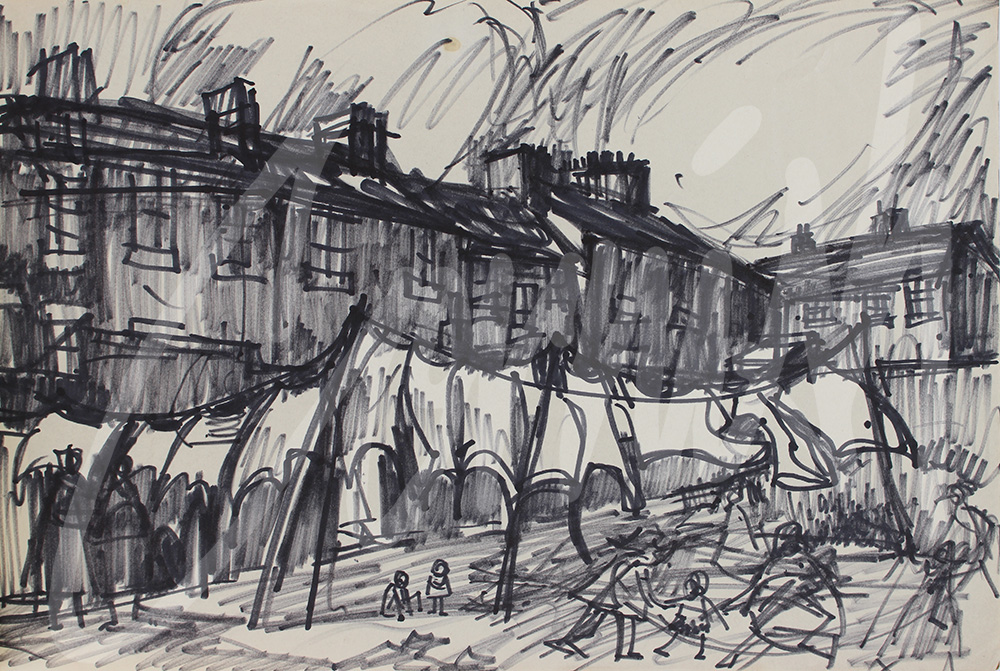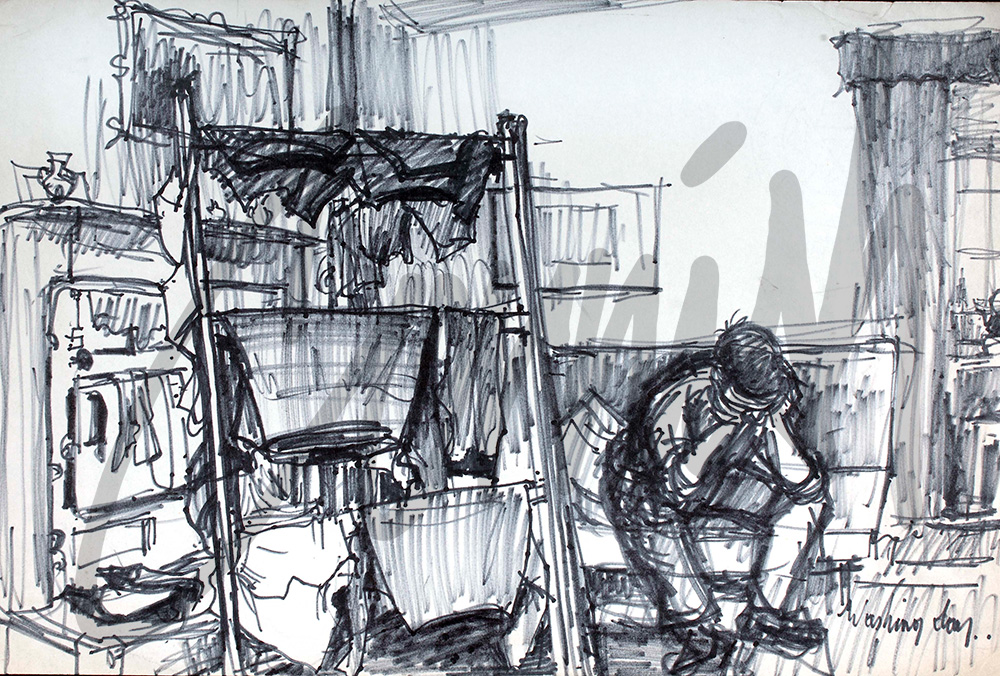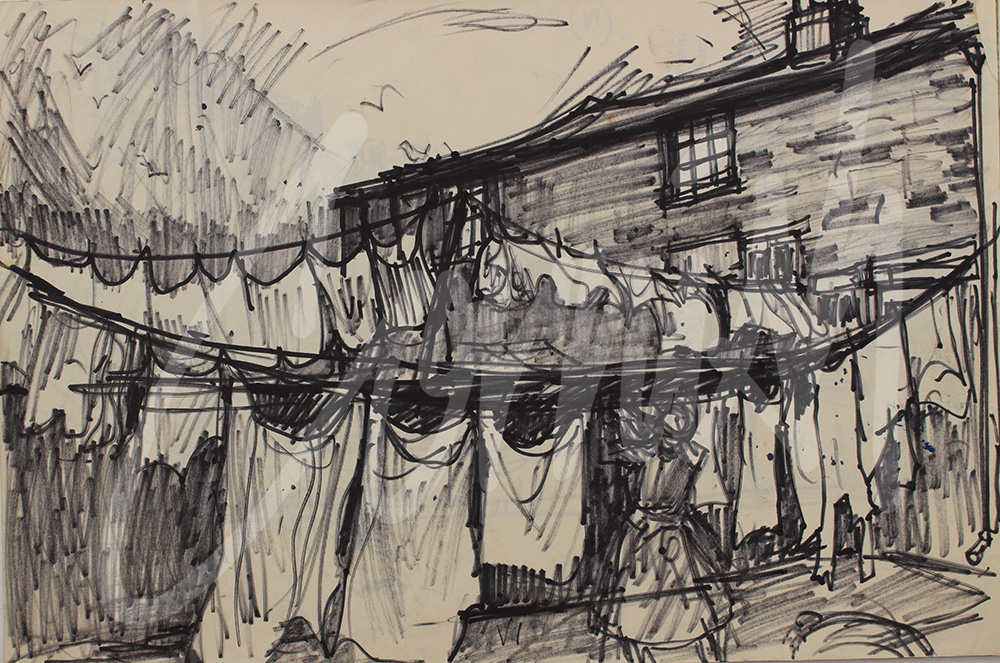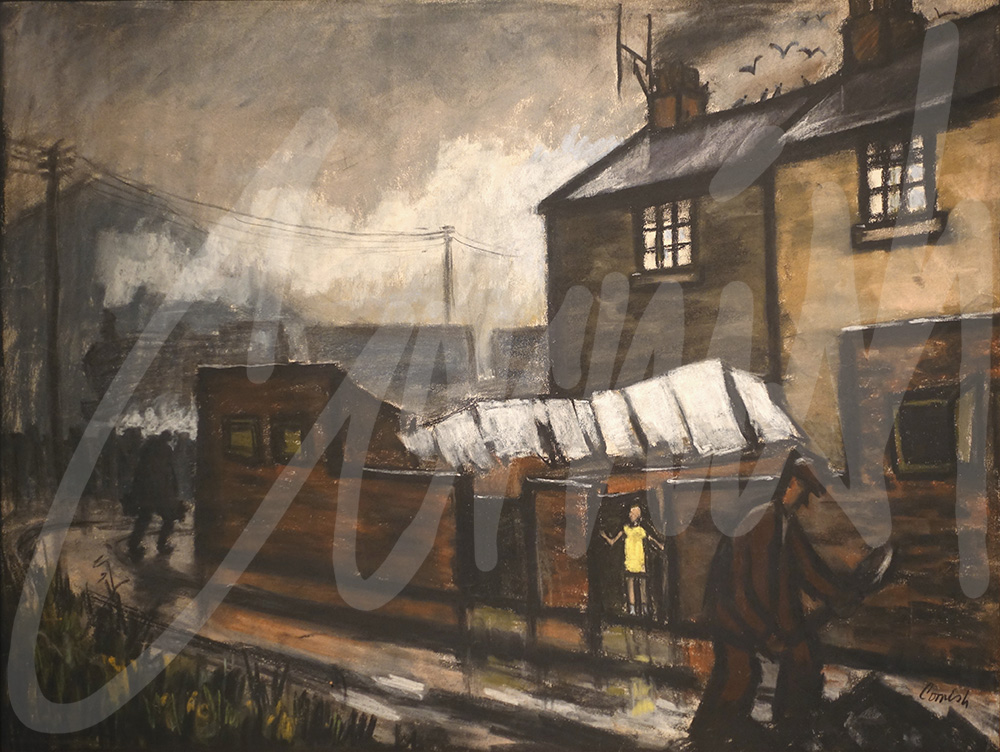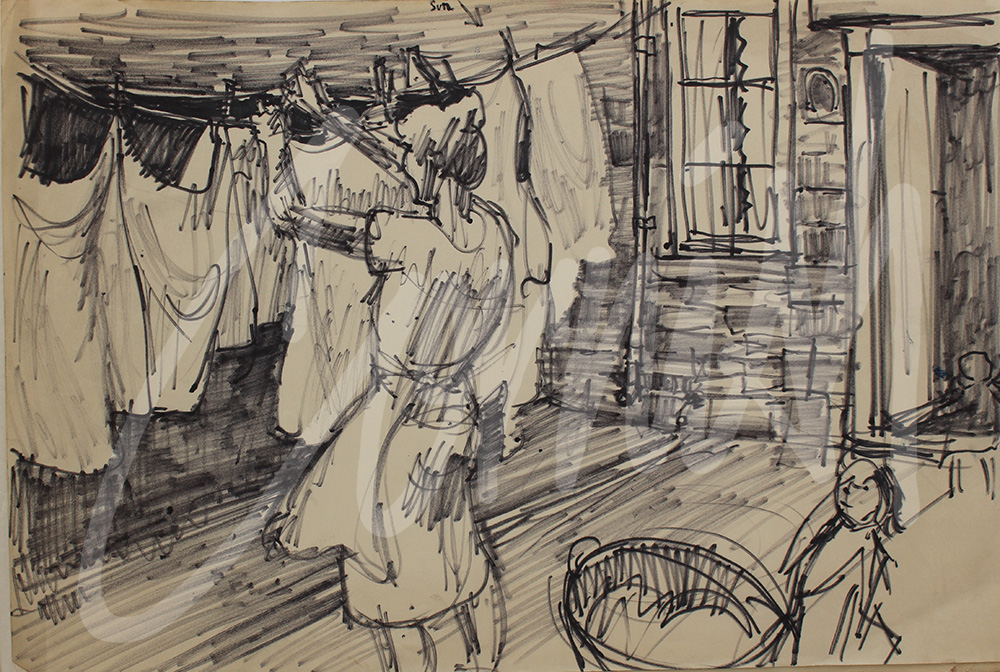
Latest News

A Good Drying Day:
‘They that wash on Monday have all the week to dry.’ This Victorian advice on housekeeping routines set in stone the idea that Monday should be wash-day so that everything could be dried, pressed, aired and folded well before Sunday, the day of rest and clean clothes. A typical Monday in many homes during the 1950s would have seen a small kitchen full of laundry at different stages of washing, and hot water was provided by various means. Some homes had a boiler heated by the coal fire but at 33 Bishops Close Street a gas burner underneath a metal tub provided the hot water. A ‘blue bag’ was added to make the whites ‘whiter.’
Washing machines were a late arrival in Spennymoor in the 50s and ‘poss tubs’ were in use in most homes and handwashing was the norm.
A clothes horse was an essential item in every home for drying indoors around the fire, although dampness pervaded the atmosphere when drying outside was impossible. A good drying day meant that the back yard or back lane was full of washing ‘hanging out to dry,’ supported by a ‘clothes prop’ fashioned from a single piece of wood with a v-shaped notch cut at the end of the prop.
There were many obstacles within a short distance of the back gate in Bishops Close Street including a slag heap, ironworks and steam engines pulling coal trucks at all times of the night and day. Any thoughts of playing cricket or football in the back lane on washing day quickly evaporated when met with short sharp reprimands from mothers, although a skipping rope was slightly more acceptable. The writer vividly recalls (Tyneside, aged 7yrs) with the lads, hearing the words, “if that ball goes anywhere near my washing you’ll all be skinned alive and hung out on the washing line to dry!”
All of these memories, including the delivery of coal in the back lane were also recorded by Cornish and his work continues to provide a remarkable slice of social history typical of many communities throughout the UK.
The ‘poss tubs’ have all gone, along with the clothes horses, and good drying days are no longer essential. This social change also signalled the demise of the clothes peg which was probably one of the few items to escape the attention of Cornish in his sketchbooks.
